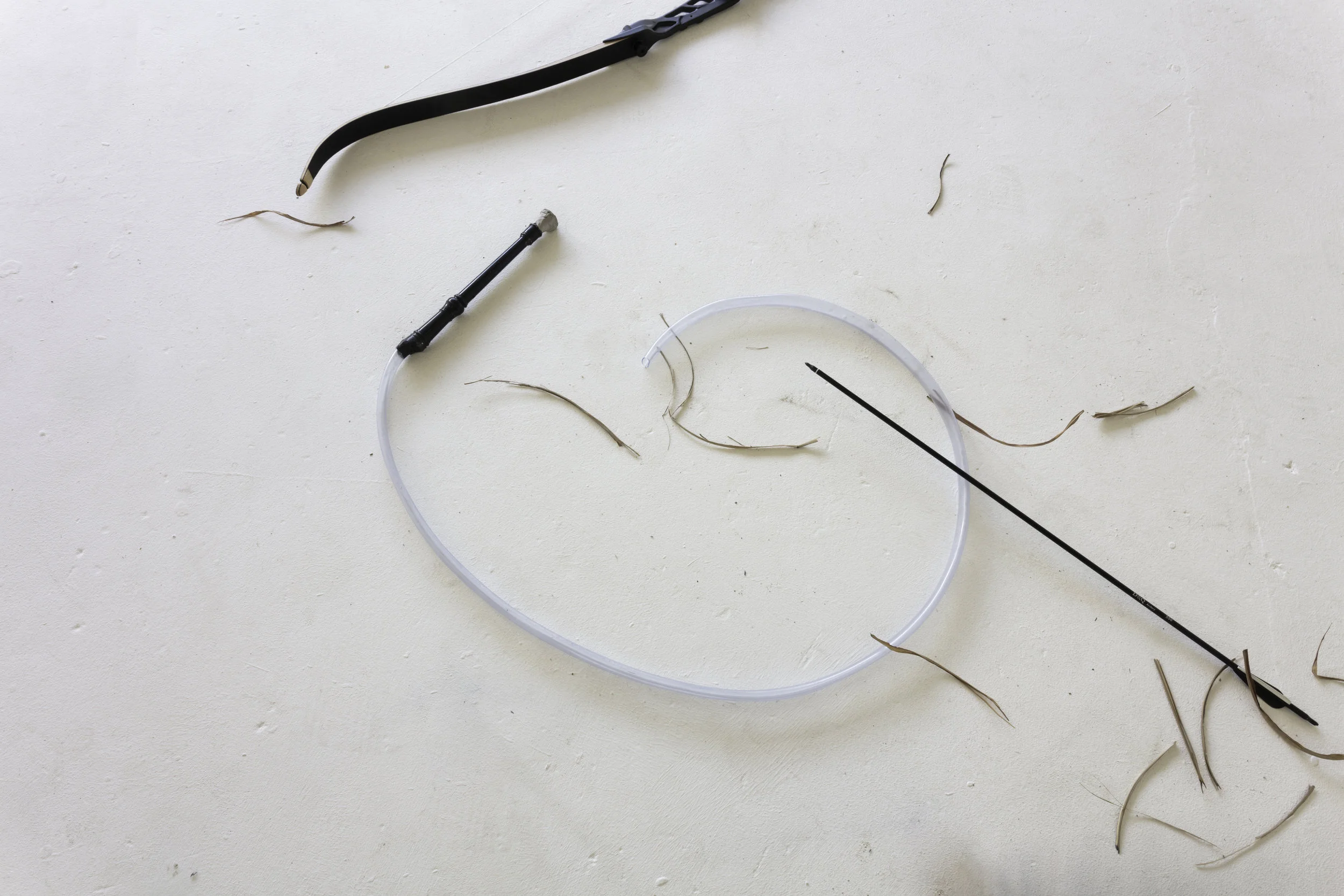the domestication of wolves
fear of men burned wood and chrome chairs, leather motorcycle gloves
mimesis bird wing, found headlight
in the future, we replace electricity with magic discarded exterior light fixtures, candles
cryptid stainless steel exhaust manifold, rattlesnake skin, cotton
regression of men artist's leather boots, mold, wood-ear mushrooms
horns & regression of men artist's leather boots, mold, wood-ear mushrooms, found wing-mirror
phallus-flute, arrow, & recurve bow
“Theater is sincerely inauthentic, but it aspires to realness, and so too does the actor wish to be believable. But what a proclamation it is to say that I am real, that I am not a representation. But fiction is written from our understanding of nonfiction. It is the known and familiar that defines the unknown and strange, so the unknown will remain unknowable. Drama is that real unreal, because it is someone’s reality that is distant from your’s. Although you take comfort in being distant, in being indoors away from the wild. But what is the real? That which is authentic must be authenticated. Dogs and wolves are the same species. Dogs are authentically wolves but tame wolves are sincerely dogs. Joseph Beuys’ beast was a dog. But so too do wild dogs become wolves and you’ve yet to know the sincere rage and danger of wolves. They howl when they hunt, but also when they are hurt, but why am I telling you this? When you hear howling you only hear music. Art is the medicine for the ill, but what if I refuse to lick my wounds? My biggest regret is having to become somebody. I could never just be. And because empathy is founded in one’s ability to relate, I had to learn your language. I had to be kind, I had to be tamed. But the wild are not made tame when kept indoors and feral dogs still hunt in packs. They say to never bite the hand that feeds you. I will bite the hand that feeds me because I refuse to be anyone’s pet, and I question the implication that the wild need feeding when we still have our teeth. But if I tell you that I crave the taste of blood will you think that I am angry or that I am hungry? I have anger because of hunger. I regressed to wildness because I was left outdoors. You cannot domesticate wolves, because they will never forget their ferality and their ferocity. Their sincere rage. Touch me. Feel that I am real.” -Monologue Excerpt
all photos Liz Calvi











